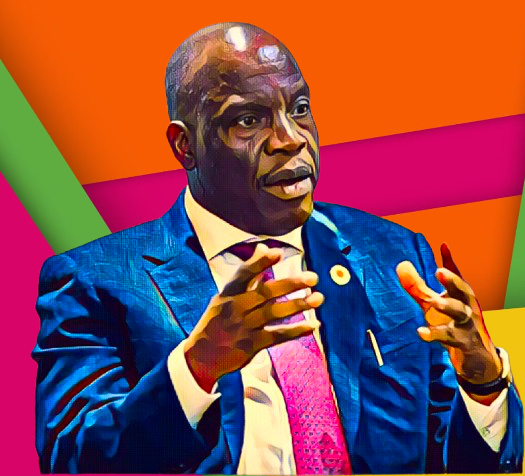KEY POINTS
- NUPRC chief Gbenga Komolafe urged Dangote Refinery, PENGASSAN, and NUPENG to resolve disputes peacefully without disrupting fuel supply.
- He announced a 90% reduction in crude oil theft since 2021, crediting Tinubu’s directive to use both military and regulatory approaches.
- New digital tracking regulations now allow Nigeria to monitor crude oil exports in real time, a first in the nation’s oil history.
Nigeria’s petroleum regulator, NUPRC, has stepped into the growing standoff between Aliko Dangote’s refinery and oil sector unions, urging all sides to resolve their differences without putting the country’s fuel supply at risk.
Gbenga Komolafe, Chief Executive of the Nigerian Upstream Petroleum Regulatory Commission, NUPRC, said the dispute between Dangote Petroleum Refinery and Petrochemicals, the Petroleum and Natural Gas Senior Staff Association of Nigeria (PENGASSAN), and the Nigeria Union of Petroleum and Natural Gas Workers (NUPENG) must not spill over into disruptions that could destabilize the energy chain.
“Regardless of the fact that the issues involved are purely mid and downstream affairs, our take is that parties should refrain from anything that will cause disruption in energy supply,” Komolafe said in an interview on Arise Television. “These are matters that can be settled through dialogue for the good of the country.”
Tinubu’s Security Push Cuts Oil Losses, Restores Investor Confidence
Beyond the labour tensions, Komolafe highlighted what he described as one of the commission’s biggest achievements: a sharp reduction in crude oil theft. According to him, oil losses have fallen by about 90% since 2021, when the NUPRC was established, following a directive by President Bola Tinubu to deploy both “kinetic and non-kinetic” measures to curb sabotage.
He stressed that protecting the integrity of Nigeria’s oil sector was vital not just for revenue but also for investor confidence, warning that negative narratives about insecurity and oil theft could discourage global capital from flowing into the industry.
On the regulatory front, Komolafe cited two new frameworks as game changers: the Upstream Measurement Regulation and the Advanced Cargo Declaration Regulation. These, he said, are designed to digitally track every barrel of crude from Nigeria’s terminals to discharge points abroad.
For the first time in more than 70 years of oil exploration, Komolafe noted, Nigeria can independently verify export volumes rather than relying on reports from international oil companies. “Our objective is to ensure real-time data tracking, so that if a tanker loads 1 million barrels and discharges 1.2 million, the system immediately flags it,” he explained.



